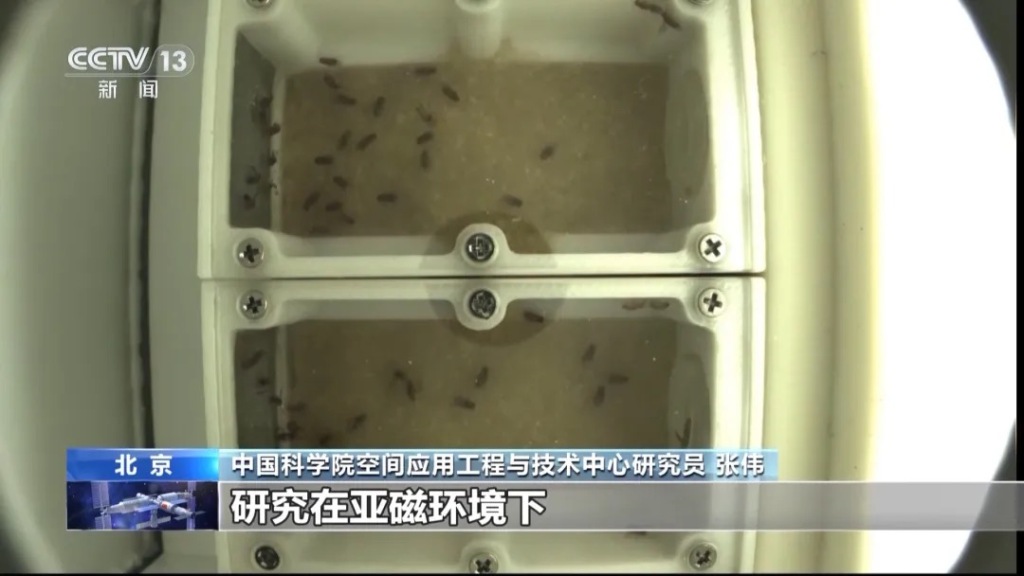
The first batch of fruit flies bred in orbit at the Chinese space station will soon return to Earth on the Shenzhou 19 manned spacecraft. Chinese scientists conducting related research say they expect to achieve a number of scientific results.
Fruit flies are small, reproduce quickly, have rich behaviors, and are highly homologous to human genome sequences. They are an excellent model organism that is both conservative and adaptable. On November 15, 2024, my country took fruit flies into space for the first time on the Tianzhou-8 cargo spacecraft to conduct experiments, aiming to study the growth and development, behavioral performance, and gene expression of organisms in the space hypomagnetic-microgravity composite environment.
According to Li Yan, a researcher at the Institute of Biophysics of the Chinese Academy of Sciences, the experiment lasted more than a month and three generations of fruit flies were bred in succession. The astronauts performed transfer operations and sample collection for each generation.
This is the first time that my country has built a fruit fly breeding platform and carried out scientific research in the Chinese space station. It is also the first time in the world that a space hypomagnetic environment has been set up in a space station and its biological effects have been explored. Li Yan said: "This shows that fruit flies have the reproductive ability to grow and develop, court and mate in the special environment of space without gravity and magnetic fields. It provides an important basis for studying the effects of space environment on biological reproduction, development, brain and behavior, and also provides a scientific basis for the health protection of future human space voyages."
In addition, researchers also obtained a large amount of video data for analyzing and studying the growth and development of fruit flies in space environments, as well as behavioral characteristics such as sleep and courtship.
"Through the video, we saw some new behavioral patterns that are completely different from those on the ground. Because there is no gravity, the fruit flies will float or even somersault, and their mating success rate is also lower than on the ground." Li Yan said, "While floating, the fruit flies will continue to rub their legs. This behavior also occurs on the ground, reflecting their anxiety, just like humans scratching their heads when they are anxious."
The fruit fly research platform on the Chinese space station is located in a small universal incubator in the life ecology experiment cabinet. This incubator can strictly control temperature and humidity, light cycle and gas circulation conditions.

According to Zhang Wei, a researcher at the Space Application Center of the Chinese Academy of Sciences and director of the Application Development Center, since the launch of the Wentian laboratory module on July 24, 2022, the life ecology experiment cabinet has successively carried out space growth experiments on animals and plants such as Arabidopsis, nematodes, fruit flies, and zebrafish. These experiments are expected to reveal the impact of microgravity on the growth, development, and metabolism of individual organisms, and promote human understanding of the essence of life phenomena.
According to the plan, the Shenzhou 19 manned spacecraft will return to Earth in the near future. "These frozen fruit flies will be returned with the spacecraft and used for research and analysis such as gene sequencing," said Li Yan.